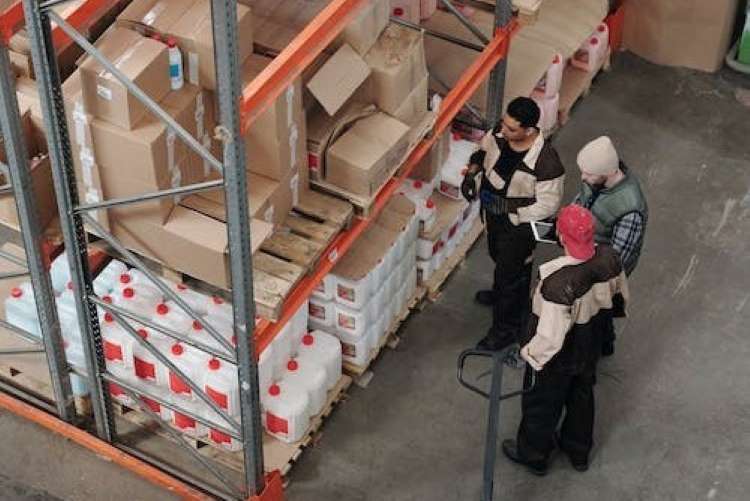
MSME sector: India, holding the world’s second-largest base of Micro, Small, and Medium Enterprises (MSMEs) after China, has seen the government actively promoting the sector’s growth. This push aligns with its vision for a self-reliant economy, encapsulated in the Atmanirbhar Bharat initiative. Despite a range of incentives and schemes introduced in recent years, industry associations express scepticism about their effectiveness on the ground.
With 63.4 million MSMEs, contributing 30% to India’s GDP and 45% to its exports, the sector is vital to the economy. It is also the second-largest employer in the country, providing jobs to around 120 million people. The state of Maharashtra leads in Udyam registrations, followed by Tamil Nadu, Uttar Pradesh, Gujarat, and Rajasthan.
READ | India struggles to create quality jobs, tackle unemployment
Despite substantial policy support on paper, like sector-based production-linked incentives (PLI) programmes, the real impact of these policies on small industries remains a topic of debate. The ECLGS, introduced in March 2020 to mitigate the impacts of the coronavirus pandemic, provided essential liquidity to MSMEs. However, micro enterprises faced challenges, with 20% of ECLGS loans to this segment turning delinquent or non-performing.
Challenges facing MSME sector
The sector faces numerous challenges, including delayed payments and limited access to funding. Dun & Bradstreet estimates that delayed payments to MSME suppliers amount to Rs 10.7 lakh crore annually, significantly impacting their financial health. 99% of India’s MSMEs are micro enterprises, and these payment delays hinder their ability to scale up.
The COVID-19 pandemic and subsequent geopolitical tensions, such as those arising from the Ukraine war, have had a profound impact on India’s MSME sector. The pandemic, in particular, posed unprecedented challenges, disrupting supply chains, reducing consumer demand, and leading to operational halts. Many MSMEs faced acute liquidity crunches as their revenues plummeted, while fixed costs remained unchanged.
The Emergency Credit Line Guaranteed Scheme (ECLGS) was introduced as a response to this crisis, providing much-needed collateral-free credit to MSMEs to meet their operational liabilities and aid in business continuity. Despite this, the financial health of many small enterprises deteriorated, with a notable percentage of loans extended to micro enterprises under the ECLGS turning delinquent or non-performing. This highlighted the severity of the pandemic’s impact on the smaller, more vulnerable segments of the sector.
Geopolitical tensions further compounded the challenges faced by MSMEs. These events disrupted global supply chains, leading to increased costs and shortages of raw materials. This, combined with the pandemic’s lingering effects, created a dual challenge of managing supply chain disruptions and cost escalations. Moreover, rising interest rates in major economies added to the financial strain, making borrowing more expensive.
These factors collectively hindered the MSME sector’s ability to recover swiftly from the pandemic’s impact, underscoring the vulnerability of small businesses to global economic and political upheavals. The Indian government’s initiatives under the Aatmanirbhar Bharat Abhiyaan aimed to provide some relief, yet the full recovery and resilience building of MSMEs in the face of these challenges remain critical areas of focus.
Under India’s G20 presidency, there is a focus on integrating MSMEs into international trade. Prime Minister Modi emphasized the global importance of MSMEs in business, employment, and GDP. Finance Minister Nirmala Sitharaman pointed out the need for better information access for MSMEs to facilitate their involvement in international trade.
Despite laws like the MSMED Act, 2006, and the Trade Receivables Discounting System (TReDS), there are gaps in implementation. The sector also requires enhanced technological support to improve productivity and reduce costs. Addressing financial challenges is crucial for the survival and growth of small businesses. Industry experts advocate for policies that ease credit availability and improve access to technology. Without adequate support, India’s goal of becoming a $5 trillion economy by 2025 may not be realized.
MSMEs in India face several financial challenges. One of the primary issues is delayed payments, which significantly affect the liquidity and operational efficiency of these enterprises. The ministry has acknowledged this problem and has implemented the MSME SAMADHAAN portal, aiming to address the delayed payments to micro and small enterprises by their buyers. As per the report, since the portal’s launch, a substantial number of applications have been filed by MSEs for delayed payments, highlighting the prevalence of this issue. Additionally, the report indicates that many MSMEs’ accounts have become stressed or non-performing, underlining the financial distress in the sector.
The ministry has initiated several schemes under the Aatmanirbhar Bharat Abhiyaan. Notably, the Emergency Credit Line Guaranteed Scheme (ECLGS) was launched as an emergency measure during the COVID-19 pandemic to provide collateral-free credit to MSMEs, aiding them in meeting operational liabilities and reviving business activities.
Furthermore, the Credit Guarantee Scheme for Subordinate Debt and the Self-Reliant India Fund were established to infuse necessary capital into stressed and operational MSME units, thereby attempting to alleviate some of the financial strains faced by the sector. These initiatives reflect the government’s recognition of the financial hurdles confronting MSMEs and its commitment to bolstering the sector through targeted financial support.
The central government is contemplating various measures to bolster the MSME sector. These include policies for international market integration, digital support for global competitiveness, simplified compliance with Goods and Services Tax (GST) laws, and providing low-cost credit. These measures are expected to be announced in the upcoming interim budget on February 1.
The Chennai-based Association of Indian Entrepreneurs, in a letter to the ministry of MSME, sought clarification on the status of funds announced in 2020 under various schemes, including subordinate debt for stressed MSMEs, the Self-Reliant India Fund, and the Emergency Credit Line Guarantee Scheme (ECLGS). The association has raised concerns about the significant decrease in registrations on the Udhayam Portal compared to 2017. As of June 2023, the portal had 20.09 million registered MSMEs.

